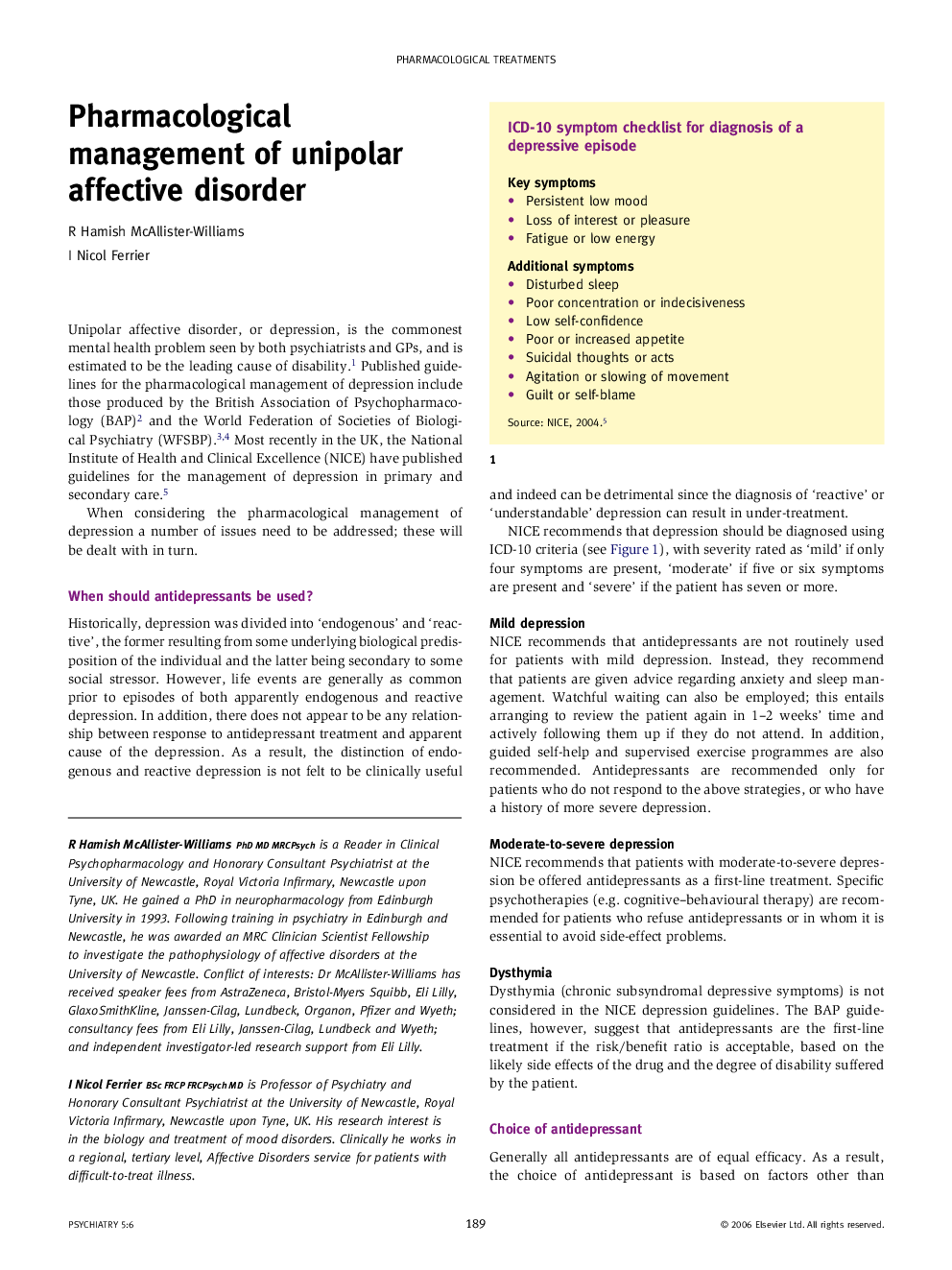| Article ID | Journal | Published Year | Pages | File Type |
|---|---|---|---|---|
| 4190314 | Psychiatry | 2006 | 6 Pages |
Unipolar affective disorder, or depression, is the one of the leading causes of disability worldwide and its effective management is a high priority. Treatment is required whether or not the illness is seen as “reactive” to circumstances or understandable. Guidelines for its management have been produced by the National Institute for Clinical Excellence (NICE). These recommend rating the severity of the illness using the International Classification for Diseases 10th edition (ICD-10). For mild depression, antidepressants are only recommended if a patient fails to respond to other interventions or there is a history of more severe depression. For moderate to severe depression, citalopram or fluoxetine are recommended as first line treatments. Alternatives if a patient fails to respond to these are mirtazepine, reboxetine, moclobemide and lofepramine. The management of treatment resistant depression (TRD – failure to respond to two adequate courses of antidepressants) is complex. NICE include recommendations to consider augmentation of an antidepressant with cognitive behavioural therapy or lithium, monotherapy with venlafaxine or phenelzine (the latter particularly for atypical depression), and the combination of mirtazepine plus a selective serotonin reuptake inhibitor (SSRI). Other strategies have limited data supporting them or are not recommended.
